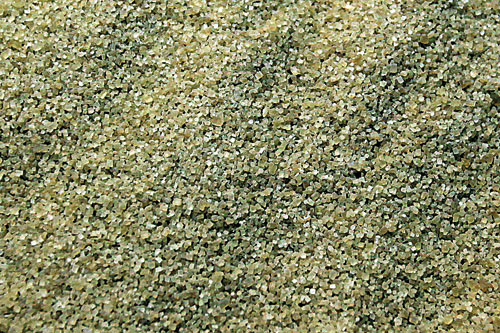Sugar tax hurts over 90 small and medium fruit drink businesses
Sri Lanka’s fruit juice and nectar industry is about to be hit badly with the extension of the sugar tax on all sugary drinks on a new directive issued by the Finance Ministry on a Presidential order.

File picture of brown sugar produced at a local factory
President Maithripala Sirisena has directed the ministry to extend the tax on soft drinks to all forms of sweetened beverages recently alleging that Nestlé had increased the sugar content in Milo to 16.5 per cent from 15 per cent in 2012.
In a special gazette notification issued on July 12, 2018, the ministry has extended the excise duty imposed on sweetened beverages to fruit juices, fruit drinks and nectar at the rate of 50 cents per gram of sugar or Rs. 12 for one litre of drinks, whichever is higher.
Budget 2018 has estimated Rs. 5 billion from the imposition of the sugar tax in Sri Lanka to state coffers. As the total expected from the revenue proposal is Rs. 110 billion, the revenue from the sugar tax accounts for 4.5 per cent of the total estimated revenue from this year’s budget.
Unwilling to bear the cost in their profit margins, fruit drink companies have been left with two choices; change their recipes to include less sugar or push prices up and risk losing their consumers, industry sources said.
Fruit drinks, juices and nectar produces are feeling the brunt of the sugar tax which came into effect from July 25, a leading member of fruit juice manufacturers association told the Business Times.
He noted that the President has given them an assurance, at a meeting held with representatives of their association recently, to appoint a special committee to look into their grievances and find redress by exempting them from paying this tax.
But so far no action has been taken to remove this tax resulting in a drastic fall in overall sales in the fruit juice industry since enforcement of the excise tax on sugary drinks three months ago.
As a result the price of a bottle of fruit juice or drinks will go up by 30 per cent, he said adding that Sri Lankan consumers will be deprived of more organic and natural fruit juice and beverages due to price increase.
In a letter to the President, fruit juice manufacturers noted that leading companies like Country Style Foods Pvt Ltd (SMAK), Lanka Canneries Ltd (MD) and Cargill’s Agri foods Ltd (KIST) are carrying out this business encouraging local fruit cultivation and a large number of farmers engaged in fruit cultivations.
These companies are purchasing over 12 million kilograms of fruits annually from those farmers and this massive stock of fruits is almost 80 per cent of the total production. In addition over 90 family-based small and medium scale fruit drink producers earn a living from this industry.
These local manufacturers contribute a massive sum of over Rs. 1.3 billion as annual tax payments to government coffers. They are also pay VAT, NBT and income tax in addition to the new excise duty, he said pointing out that some of the BOI-approved fruit juice production companies have been given tax free benefits to import fruits and they also enjoy the facility to sell the excess production of fruit drinks locally.
In the backdrop of distributing the excess production in the local market by those BOI approved foreign companies at low prices, this will create a monopoly hitting the local producers badly, the letter sent to the President emphasised.
The introduction of such unilateral tax policies will result in the collapse of local fruit juice and nectar companies as well as the rural community living style based on agriculture economy, it pointed out.
Local companies will lose export opportunities and foreign exchange earnings due to high production costs.
Special fruit out-growers projects such as the cultivation of passion fruit, pineapple and Aloe Vera have also been affected as the fruit demand for sugary drinks has dropped by a significant margin, an indication that the higher prices have pushed away consumers from high sugar drinks.
Although it is premature to predict the public health benefit from the sugar tax, the carbonated beverage industry is already feeling the pinch of the 50 cent tax on each gram of sugar in soft drinks, market analysts disclosed.
John Keells Holdings PLC (JKH) that has a larger market share in Carbonated Soft Drinks (CSD) market in the country has recorded a drop in volume of 37 per cent due to the implementation of a sugar tax, they said.
The imposition of the sugar tax resulted in the prices of the CSD increasing by an average of 33 per cent.
Additionally, volumes of the beverage sector declined by 16 per cent, owing to upward price revisions of the carbonated drinks range, they pointed out.


